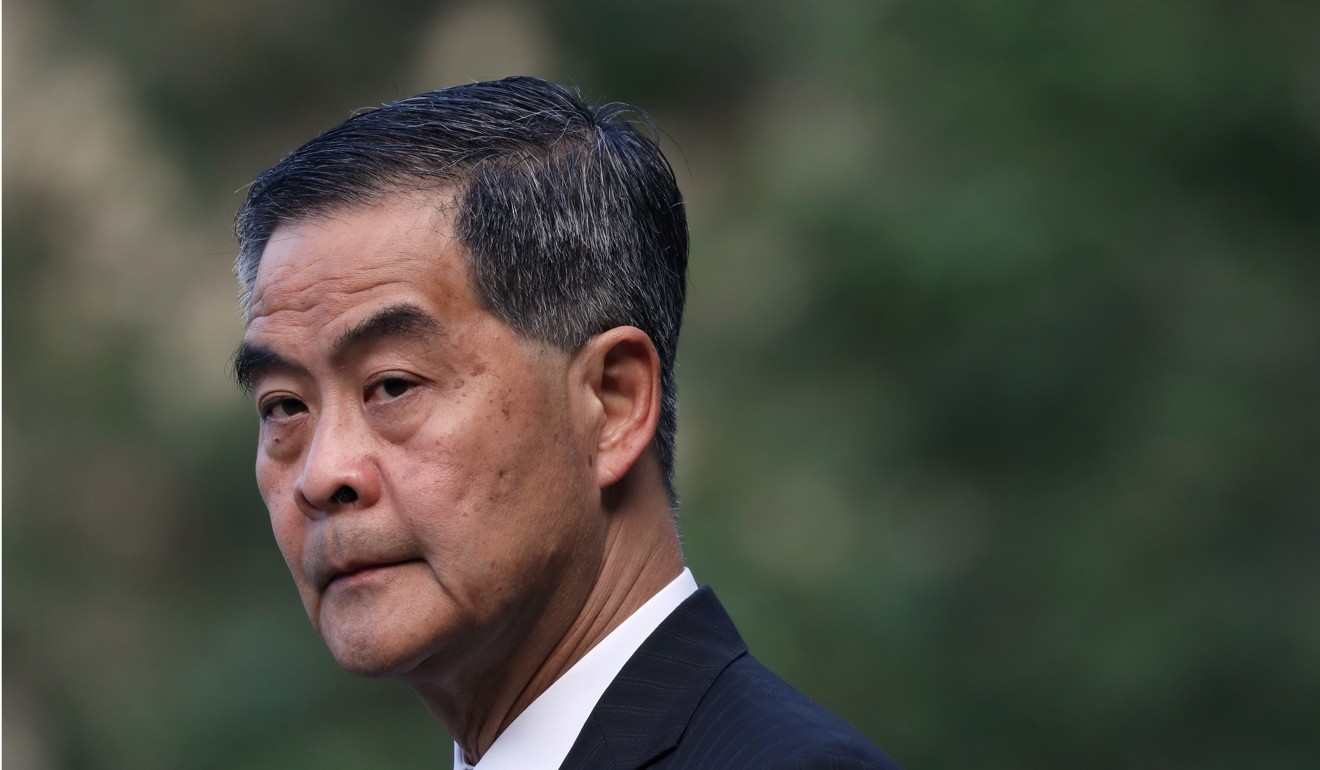
Why Hong Kong justice chief Teresa Cheng’s handling of CY Leung case is so controversial and how she could have done things differently
- Critics argue the justice department has veered from conventional practice on cases involving a top government official
- Cheng says it was an ‘informed and professional decision’ not to prosecute former leader
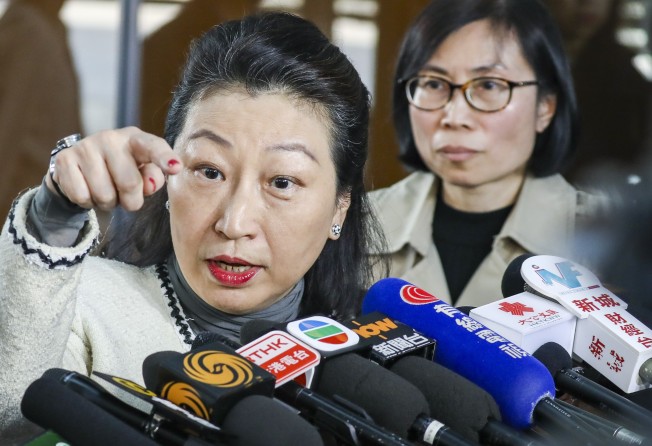
The Department of Justice (DOJ) chose not to prosecute former Hong Kong leader Leung Chun-ying who received part of a HK$50 million (US$6.4 million) payment from Australian firm UGL while in office, but the move lit a fire under critics.
With the department not explaining the legal principle behind its decision, questions were raised over why external advice was not sought.
Under pressure, Secretary for Justice Teresa Cheng Yeuk-wah defended the handling of the matter, saying it was an “informed and professional decision”. She sparked further controversy by adding that an external legal counsel would be brought in on a case only if it concerned a DOJ member.

Why is the lack of external legal advice so controversial?
Former prosecutors and pro-democracy lawmakers argued that the DOJ had veered from conventional practice on cases involving a top government official.
Former director of public prosecutions Grenville Cross said it was “invariable practice” to seek external legal advice, and the policy was followed by all past justice ministers.
His former deputy John Reading also said he could not think of any controversial cases in which external legal help was not sought.
The practice, according to Cross, could shield the justice minister from allegations of preferential treatment.
The Bar Association, the city’s professional body for barristers, also called on Cheng and her department to seek legal advice and review the decision not to prosecute Leung.
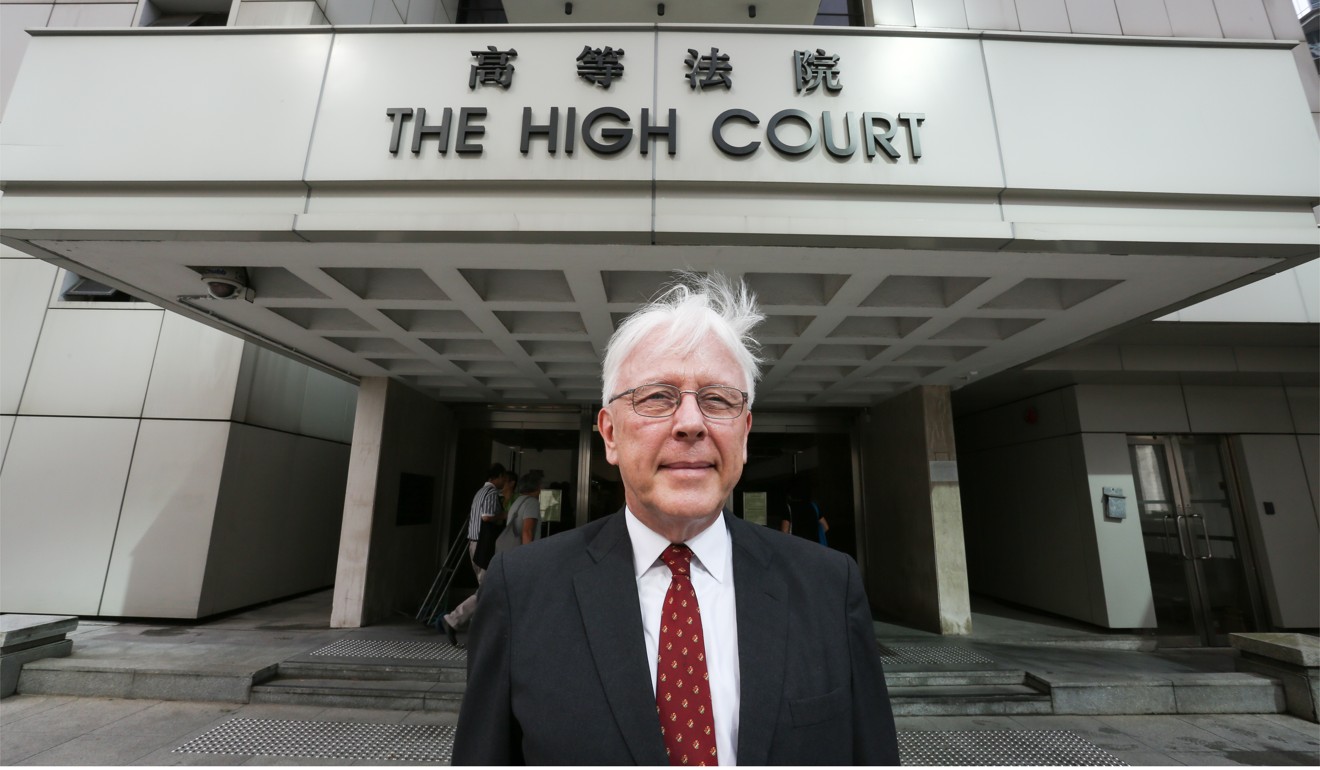
Did the DOJ change its policy in the present case?
The department said the need for a second opinion depended on the nature of operations in a particular case. One example would be “when addressing possible perception of bias or issues of conflict of interests”.
In a paper to lawmakers in February last year, the DOJ also included that as one of six scenarios for seeking external legal advice. In the latest yearly review published on the last day of 2018, the DOJ’s prosecution division said external help was sought when manpower was tight, “or when the nature or complexity of a case so warrants”.
Cheng then said such a move was necessary only if a case involved a member of her department.
The Bar Association and another legal body, the Law Society, both noted Cheng appeared to have contradicted the DOJ’s position, and urged her to clear the air.
Veteran criminal lawyer Clive Grossman, however, said it was the DOJ’s call.
Could the announcement not to prosecute Leung have been handled differently?
Cheng and her department were heavily criticised for the brief explanation over the case. The DOJ did not hold a press conference to declare its decision, instead issuing only a statement. With a judicial review under way, the DOJ said it would not comment further, amid questions as to whether Cheng had been personally involved in the case.
Chief Executive Carrie Lam Cheng Yuet-ngor later said the justice chief had a hand in it. Days after the DOJ issued its decision, it responded to press inquiries that Cheng had gone on holiday. She only addressed reporters at the airport after her return.
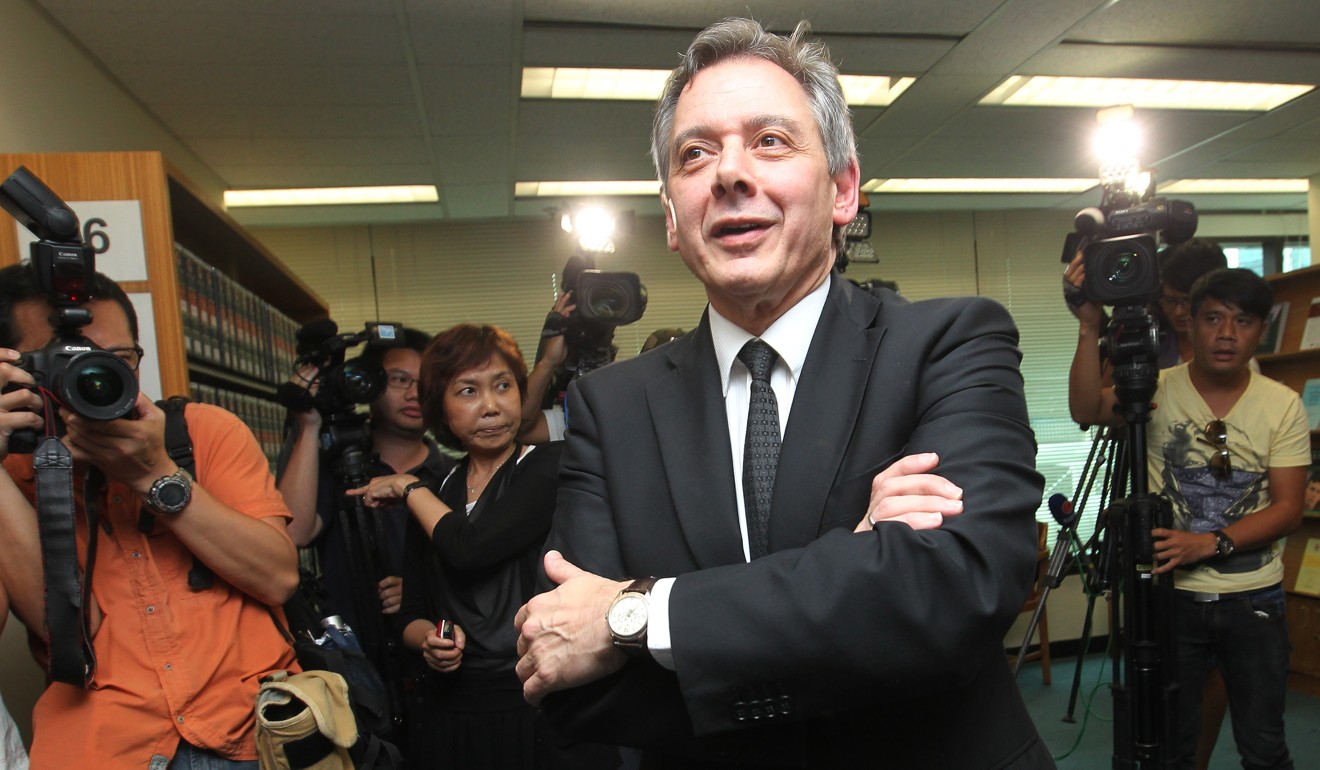
The situation contrasted with how Cross and his successor Kevin Zervos handled high-profile matters while in office – they would hold press conferences to explain prosecutorial decisions, a practice Zervos had encouraged his successor to pass on.
In not prosecuting former financial secretary Antony Leung in a 2003 case, Cross also elaborated in detail how legal issues were scrutinised, and what more was required to prove Leung guilty.
How many times has the DOJ sought external legal advice?
The department said it did not keep statistics on how many times it did so, or the number of external lawyers involved.
In total, the prosecution division spent HK$161 million (US$20.5 million) employing independent lawyers in 2017 for prosecutions.
What were past high-profile cases in which independent legal help was sought?
The DOJ has brought in external advice in multiple cases over the years concerning officials accused of misconduct while in office or a conflict of interest, with some ending in prosecutions and convictions, while others were dropped.
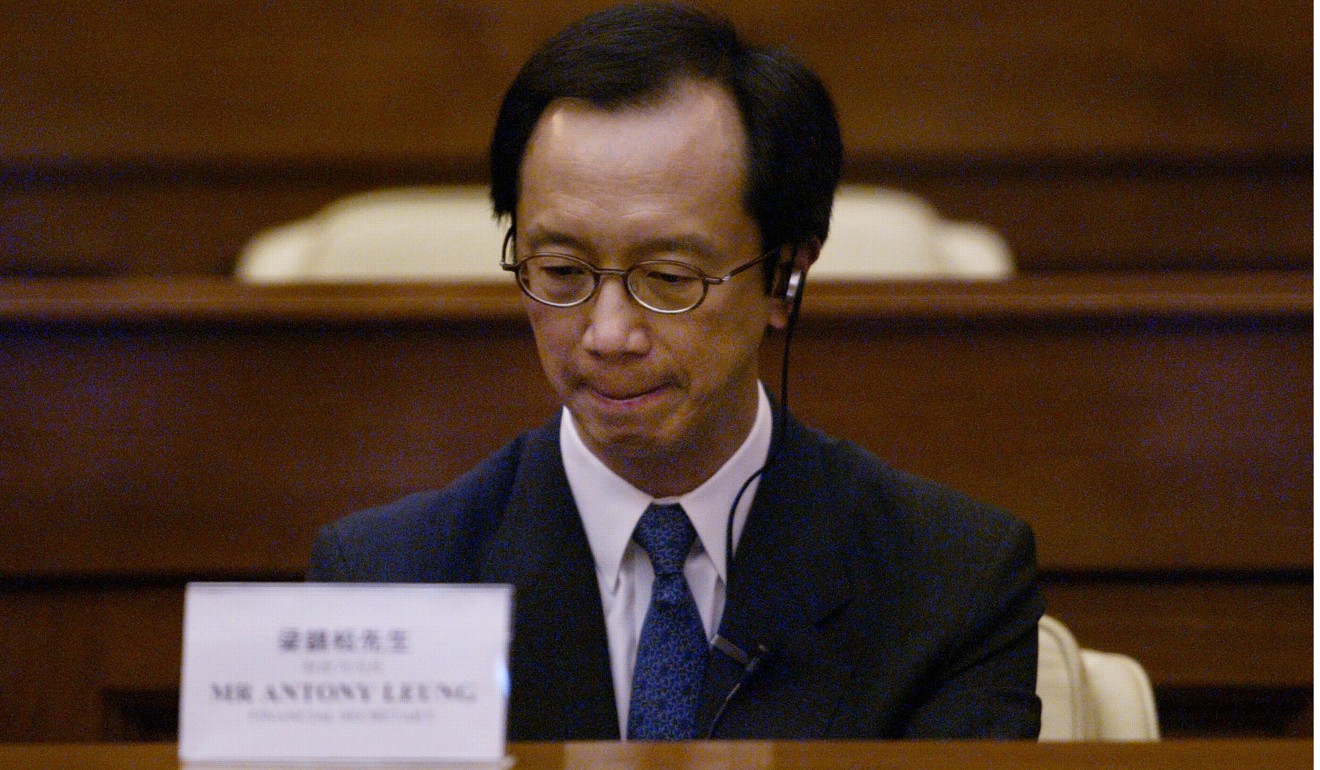
Antony Leung Kam-chung ( financial secretary 2001-03)
Case outcome: dropped
In 2003, Leung bought a car shortly before he announced the increase in a vehicle registration tax.
External senior counsel involved: Former attorney general John Griffiths was first consulted. He later sought a second opinion from British criminal lawyer Martin Wilson.
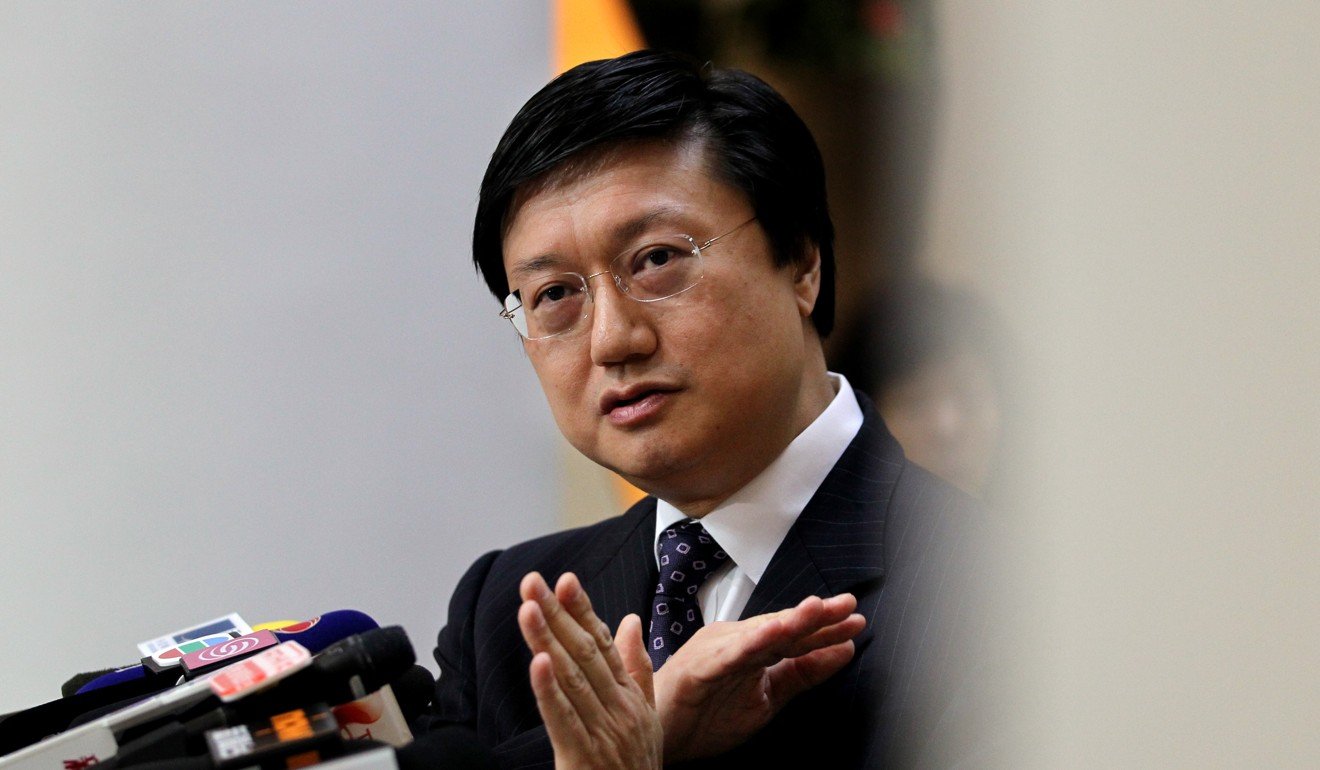
Franklin Lam Fan-keung (Exco member July 2012 – August 2013)
Case outcome: dropped
Lam, an adviser to then chief executive Leung Chun-ying, sold four properties in 2012 before the government introduced a Buyer’s Stamp Duty and an increase in the Special Stamp Duty.
External senior counsel involved: Peter Duncan
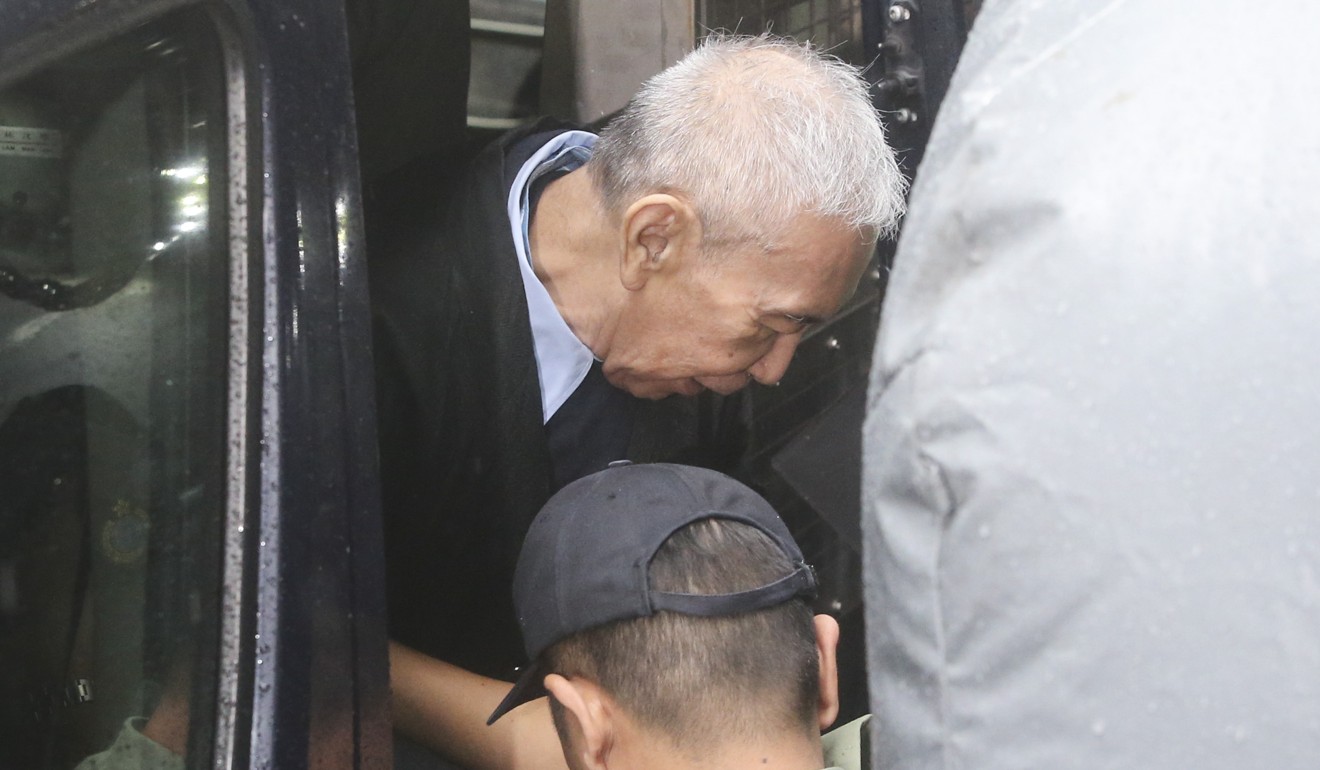
Rafael Hui Si-yan (chief secretary 2005-07)
Case outcome: prosecuted
Hui was accused of conspiring to commit misconduct in public office as the city’s No 2 official, including one charge of taking HK$8.5 million from property tycoon Thomas Kwok Ping-kwong in 2005. Hui was sentenced to 7½ years in jail in 2014.
External senior counsel involved: Undisclosed independent barrister. Former director of public prosecutions Keith Yeung also provided advice before he took up his post.
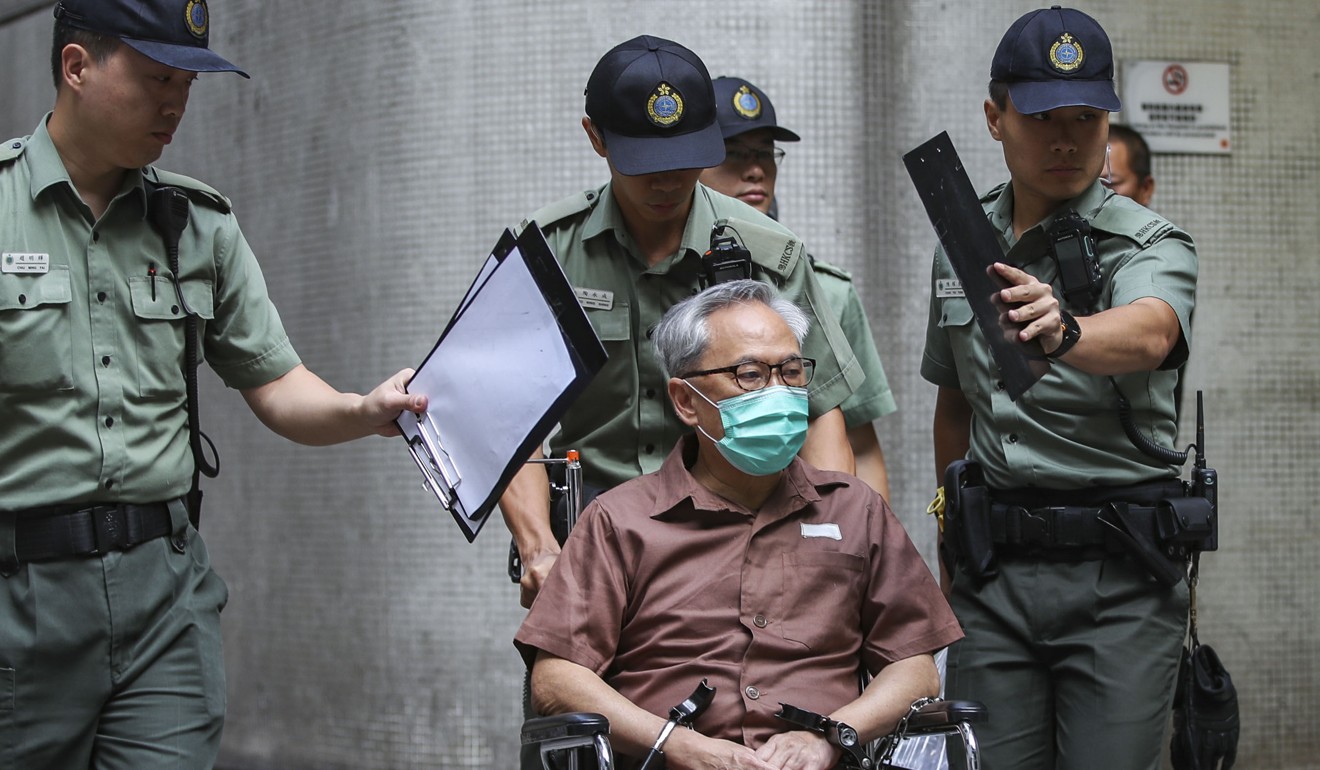
Donald Tsang Yam-kuen (chief executive 2005-12)
Case outcome: prosecuted
Tsang was accused of a conflict of interest for not disclosing a deal involving a penthouse owned by businessman Bill Wong Cho-bau. At the time, Tsang was in charge of approving licence applications for a radio station in which Wong was a majority shareholder. Tsang was originally sentenced to 20 months in jail, and lost his first appeal, although his jail term was reduced to 12 months. The top court will hear his final appeal in May.
External counsel involved: Undisclosed Queen’s Counsel from London
Otto Poon Lok-to (husband of Secretary for Justice Teresa Cheng)
Case outcome: prosecuted
Poon was charged with carrying out building work on his residence without approval from the Building Authority. Cheng, who owned the home next door, was not charged.
External senior counsel involved: Edwin Choy Wai-bond